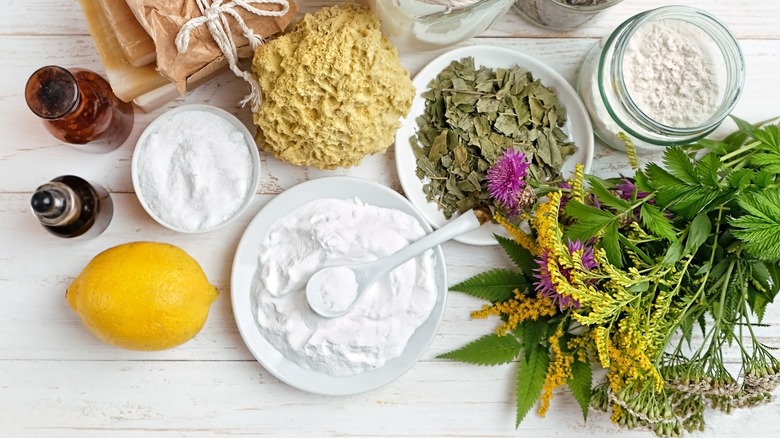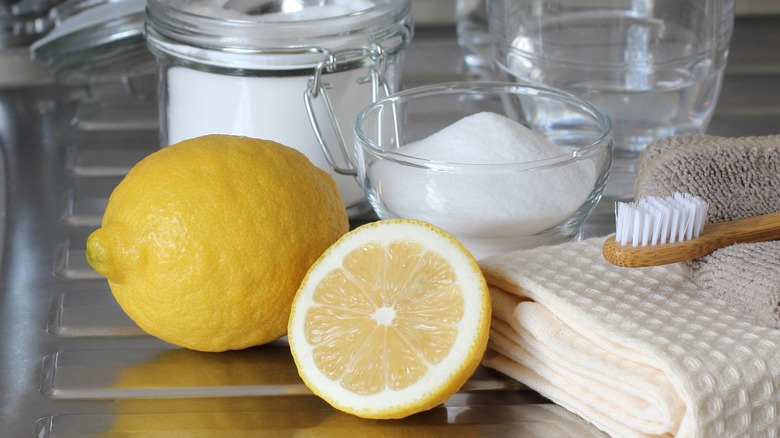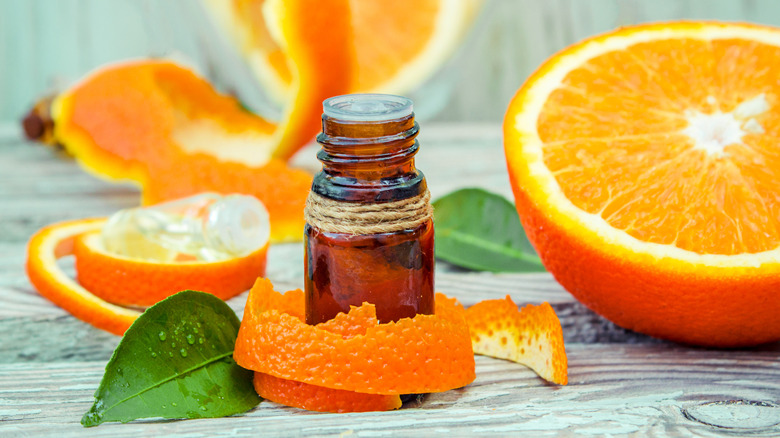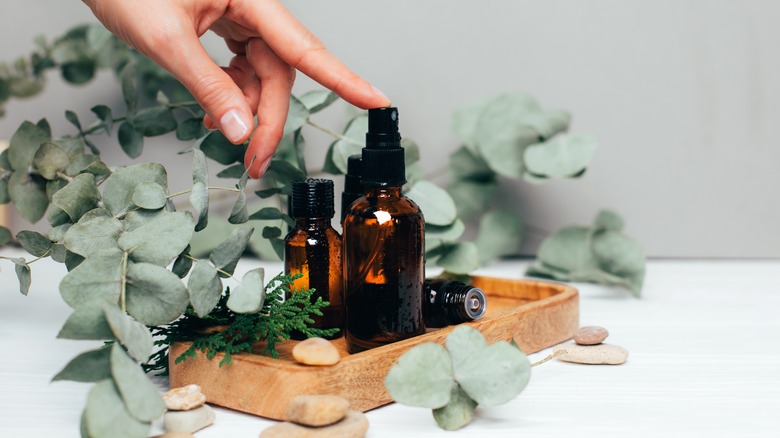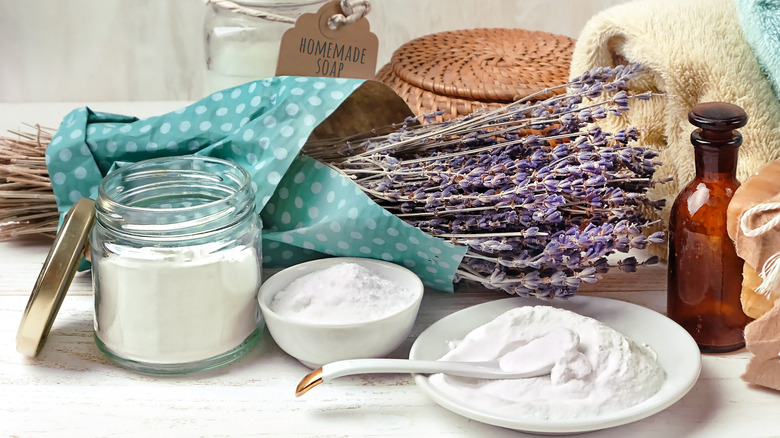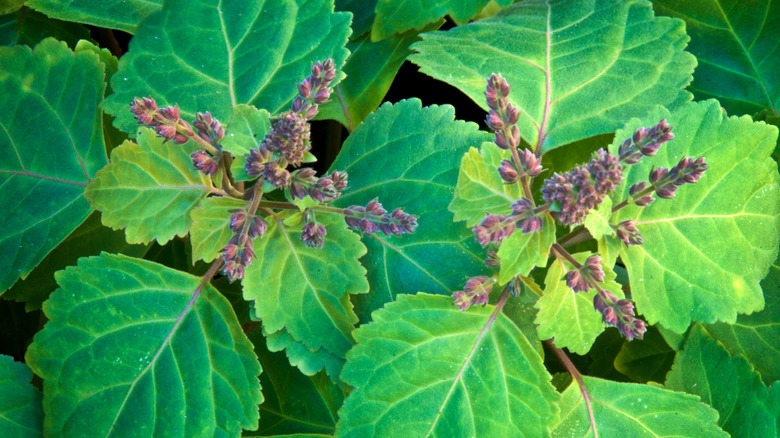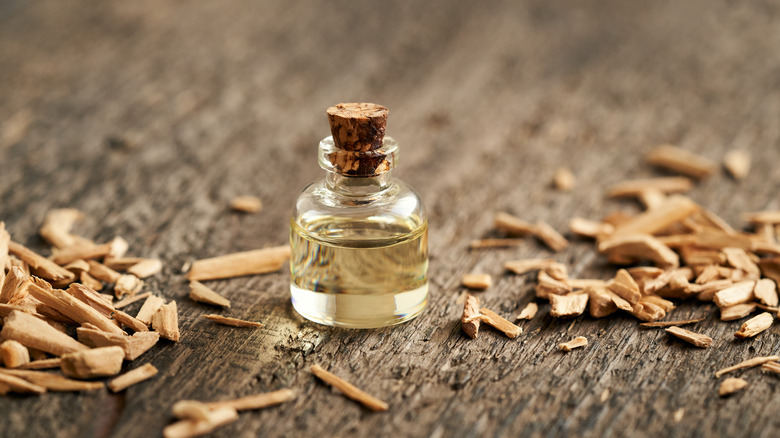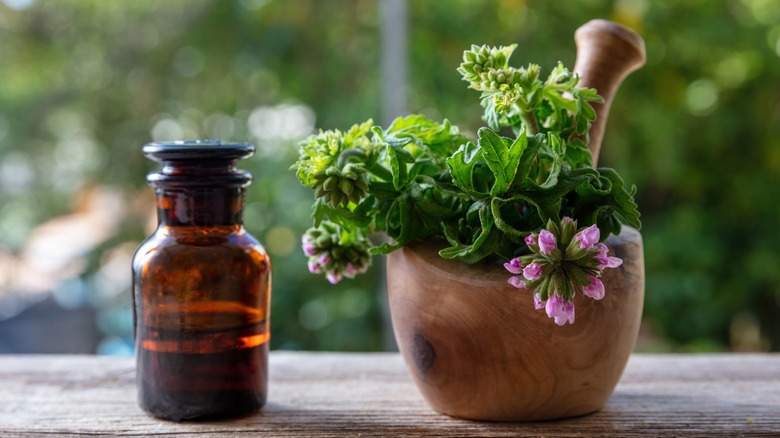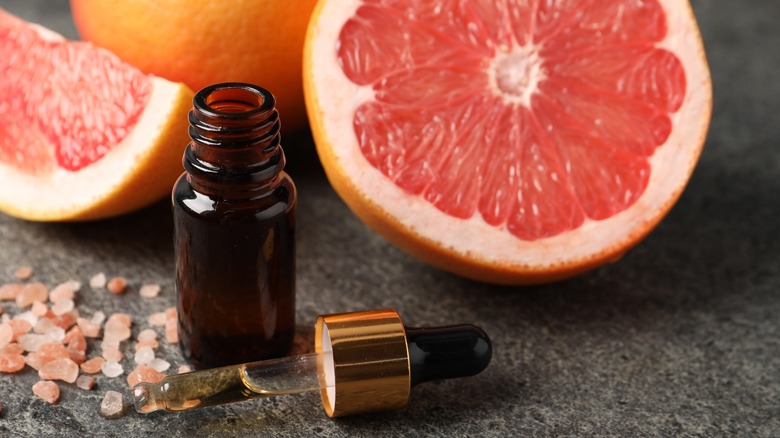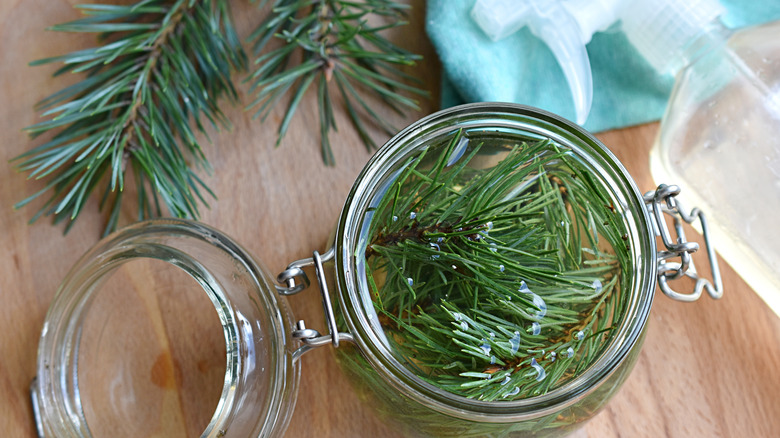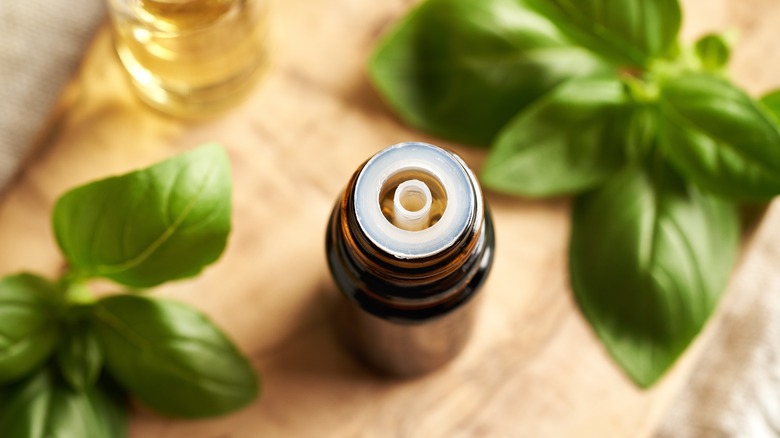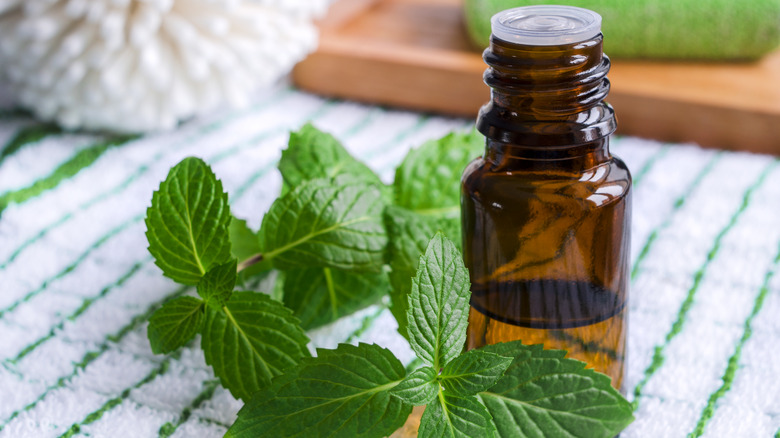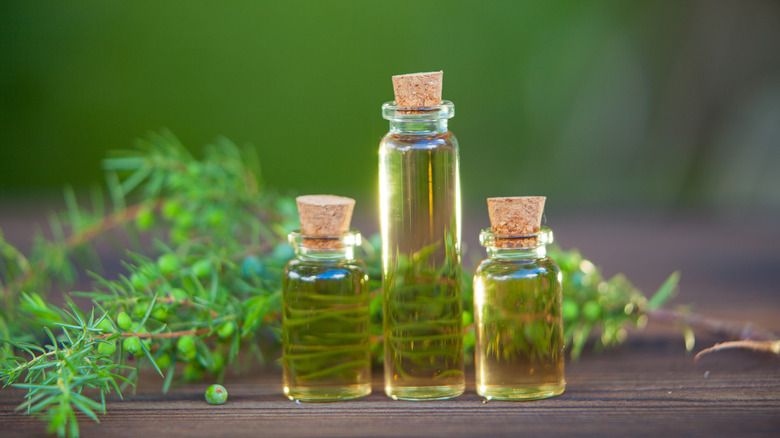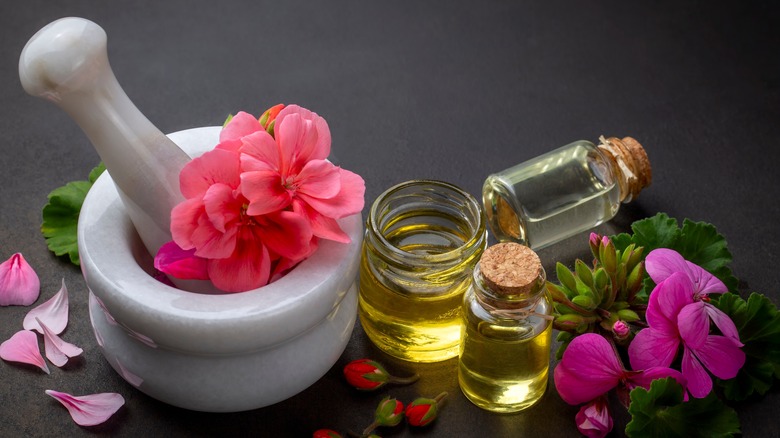The 13 Best Scents To Use In DIY Cleaning Products To Make Your Home Smell Amazing
A lot of people decide to try their hand at making homemade cleaning products for their home. The internet is bursting with DIY solutions for toilet cleaners, multi-purpose sprays, stain removers, and more. Much of this is due to the fact that people want to use products that are better for the planet and their health, opting to skip out on the harsh chemicals and plastic packaging that is common in mainstream, big box cleaners. Plus, you can save money by making your own cleaners. With all of these benefits, there are a lot of reasons to try this out for yourself. But even though you probably won't miss the eye-watering smell of ammonia and bleach or spending your hard-earned cash on store-bought cleaning supplies that aren't worth buying, there is one thing you might miss: the scents.
Homemade cleaners often tend to be made up of little more than baking soda, citric acid, vinegar, and water. These, and many other natural ingredients, are wonderful natural cleaners, but they don't have that heavenly aroma you might be seeking. So even though it isn't totally necessary to add, we love using natural fragrances in our cleaning products. Our guide will walk you through 13 options like citrus fruits and plants so you are left with a beautiful, all-natural smelling home after cleaning. As a bonus, most of these scents also have some cleaning properties, so they can make your products more effective, too.
1. Lemon
When asked what "clean" smells like, a lot of people probably think immediately of lemons. Lemons have a scent that is refreshing and invigorating but still light. It is of course great to use in the kitchen as it smells like a common food ingredient, but it works in pretty much any room of the house when put in an all-purpose spray, including the bathroom and living room. You can easily add lemon essential oil to your cleaner or you can add the juice and zest of the lemon directly into your cleaning solution.
2. Orange
In the same citrus family, you don't want to overlook orange as a great scent for natural cleaners. It has the same zesty, refreshing qualities of lemon but is generally sweeter. Orange smells great in the kitchen and bathroom, but the smell of citrus can also ward off larger insects, so consider using this scent in your outdoor cleaner as well. Orange essential oils are available, but just be sure you don't use mandarin oil by mistake, as this can stain clothes and upholstery. You can also add orange rinds to your homemade cleaning solution.
3. Eucalyptus
Eucalyptus provides a botanical scent that's sort of like a mix between a spruce tree and mint plant. Many find the scent to be incredibly relaxing, which is why it's found in so many spa products such as body lotion and oils. But it's a fantastic addition to your homemade all-purpose cleaners as well. The easiest way to add it to your cleaner by far is to use the essential oil version, but be cautious, as a little goes a long way for this super strong smell.
4. Lavender
Lavender is a very popular scent in cleaning products because it maintains a botanical balance between floral and herbaceous notes. It's also one of the most popular essential oils, prized for its calming effect. It would be an excellent in a room spray, DIY laundry spot remover, or countertop cleaner. You could also infuse white vinegar with dried lavender petals for a two-ingredient, beautiful-smelling multipurpose spray — just allow the mixture to steep for a few weeks, then strain before using. You can use this on countertops, walls, appliances, etc. Just don't use vinegar on natural stone surfaces.
5. Patchouli
For a long time, patchouli has been unfairly maligned as a scent only for the ultra granola (hippies). That's a shame because in reality, it provides a luxurious woody, musky, and softly floral scent. Given its earthy notes, we think this would make for a perfect addition to a room spray and linen spray for dark fabrics, as patchouli can leave a yellow residue on light fabrics. Patchouli is a flower that comes from the same family as lavender, so if you don't want to use essential oils, you can make your own or order dried patchouli leaves to infuse your natural cleaners.
6. Cedar
One of the nicest scents when laying mulch in the garden is cedar wood chips, which have a very musky, warm smell. If you want to bring that scent inside, you can always add a bit of cedar essential oil to your homemade cleaners. In particular, we recommend this scent for any DIY wood cleaners, as cedar oil can often be found in commercial wood cleaners and polishes. By making your own, you can still get that heavenly scent on your wood floors, cabinets, and other furniture without all of the other harsh, unknown chemicals.
7. Citronella
What if you could make a cleaning solution that's perfect for your outdoor furniture, smells great, and repels the enemy of summer fun, the mosquito? With citronella, you can. While the smell of citronella doesn't actually repel mosquitoes, it covers up the smell of the things they are attracted to, like yourself. Add citronella to a homemade outdoor furniture cleaner and instantly protect yourself from nasty mosquito bites as you clean up your backyard. Citronella has a pleasantly citrusy scent and is included in popular wood cleaners such as Murphy's Oil, so consider adding a dash to your homemade wood soap as well.
8. Grapefruit
If you like your citrus with a little more edge than oranges and lemon, try out grapefruit. It's sweet and zesty but has a subtler bitter smell. It's often used in aromatherapy as a mood lifter, and what's more motivating to use it when cleaning than that? Much like orange and lemon, grapefruit is great as an essential oil, or you can use the juice, rind, or zest to get a hit of its powerful fragrance. Grapefruit lends itself well to kitchen cleaners and degreasers as well as bathtub and toilet cleaners.
9. Pine
One of the most iconic scented cleaning products of all time has got to be Pine-Sol. It has the aroma of pine needles, which smell woody, grassy, and a little zesty. In addition to smelling great, pine needles also offer antimicrobial and anti-fungal properties, making them the perfect ingredient for all natural but effective DIY cleaners. Pine needles would be also excellent for cleaning more heavy-duty messes than your basic all-purpose cleaner. Gather pine needles from any pine tree near you, then pack them into a jar for at least seven days with vinegar, water, and rubbing alcohol, strain and add to a spray bottle, and voila!
10. Basil
Got a basil plant growing outside? Instead of adding some of the leaves to a bowl of spaghetti, why not put them to work in a homemade cleaner? Basil smells fresh, earthy, and sweet, a bit like the essence of summer. Try cleaning your home with this unexpected herb in a vinegar, lemon and orange peel, and basil all-purpose cleaner. Though it isn't as commonly found as some other scents, it can be purchased as an essential oil. We love basil for a kitchen spray, but it would also be good in a homemade insecticidal soap.
11. Spearmint or peppermint
You probably don't need to be told how mint smells or where it comes from, but it is worth mentioning as a very popular scent for homemade cleaning products. It's fresh and spicy. The two most common types of mint you'll find are spearmint and peppermint, which can be used separately or together to become a double-mint scent. Mint essential oil is readily available and can be added to most DIY cleaners, but we also love the idea of drying chopped mint leaves with a mixture of salt or baking soda to make an all-natural abrasive cleaning powder.
12. Tea tree
You may have seen tea tree oil in a number of skincare and antiseptic creams. That's because it possesses antimicrobial qualities, meaning it naturally fights and kills a myriad of problems such as bacteria, viruses, fungi, and parasites. Because of these wonderful properties, tea tree is perfect for disinfecting tasks like cleaning the toilet or sink and even food surfaces. Because tea tree oil has a pungent scent (some say medicinal) that's a mix of piney and minty notes, consider pairing it with other scents such as lemon, lavender, or geranium.
13. Geranium
If you want a floral smell but find lavender a bit overwhelming or just played out, try out geranium oil. Geraniums have a very subtle rose scent but with a hit of citrusy brightness that is divine in natural cleaning products. This would be great in a room spray or multi-purpose cleaner, but if you want to be able to carry this scent out of the house, try adding it to your own DIY fabric softener or laundry detergent. The easiest way to incorporate geranium oil into your natural cleaning arsenal is with essential oils.
